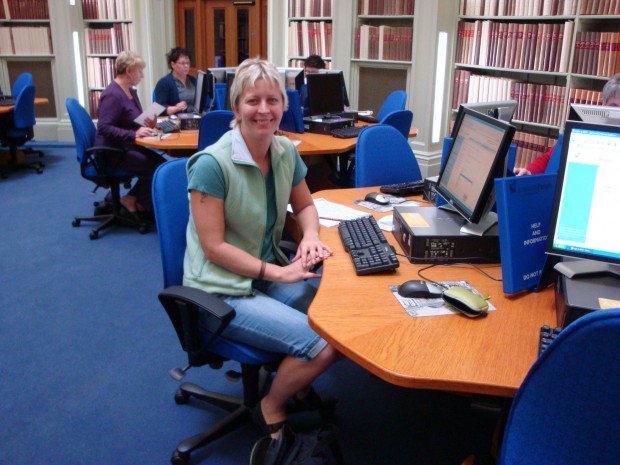Family history and genealogical research is becoming much easier as records and information become more readily available. There was a time once when doing a genealogy search could take years and cost thousands of dollars in travel costs. Now a lot of it can be done through the provision of genealogical resources and records available online and at local family history centres. Of course sometimes you must still go to the source, so travelling to libraries, archives or other places is just a part of it. Below are the most common sources of information.

BIRTH, DEATH & MARRIAGE RECORDS
Among the most common of records to gain valuable information about a past family member is a Birth, Death or Marriage certificate. These records tell us a great deal about the person as well as their spouse, their children and their parents. These are usually the first records searched for as they can quickly add a large amount of vital information to a person’s family lineage.
CENSUS RECORDS
One of the next best sources of information is past census records. Again, these can provide valuable information about a person, as well as the spouse and any children living, and they also provide a location of the person’s whereabouts at a particular time. This is a fantastic way to find out about the living conditions and traditions of the time for a historical family member.
Most times census records can provide information that will give you a time-line in which things happened. The census record below taken in 1881 shows my ancestor Mary McPhee as widowed and living with her parents, but the census record I have from 1871 shows her as unmarried. So from this we know that during the 10 years between these two census’ she married and lost her husband.
OLD PARISH REGISTERS
Sometimes a vital find during your genealogy research, these records contain births & baptisms, marriages and deaths & burials kept by individual parishes and churches. They were the only source of this type of information prior to the introduction of civil registration in the 1800’s. The information kept in these registers was never consistent as there was no standard format employed and sometimes the recording process differed from year to year and from month to month. It can also be quite difficult to read old parish records as the handwriting of the day differed from clerk to clerk and not everyone was as proficient in neatness. You must remember that these were often times when literacy was extremely low and where only those with money could afford to read and write. Also, not all events were registered with Parishes because there was usually a cost attached to it, therefore not finding your ancestors in these records can be common.
COURT & CRIMINAL RECORDS AND CONVICT REGISTERS
These are another source of valuable information. Many Australians will find an ancestor who arrived as a convict and from this we can determine where they originated from, as well as information about their crime and even their appearance at the time. Court records were quite well kept through history, some of the best being from the Proceedings of the Old Bailey in London, and also the Australian state archives such as those in Queensland and Victoria.
WILLS & TESTAMENTS
During an ancestry search wills and testaments are another set of valuable documents that can provide important insights into your ancestor’s life at the time. You can add immense detail to the account of your family genealogy by reading about heirs to family fortunes, or by looking at the list of possessions left by a deceased ancestor. Both will tell us a great deal about the deceased person’s lifestyle at the time and also the kinds of things they liked to buy and own. In most instances a copy of a will can be downloaded and printed and kept with other historical documents.
MILITARY RECORDS
War documents and military records provide us with important insights into a person’s life at the time, as well as their life at war. You may find ancestors who were merchant seamen, or some who fought alongside famous commanders and generals. Often we are able to find data about historical ships and aircraft, as well as rolls of honour and officers who received medals of bravery.

At the National Archives in Edinburgh 2008.

